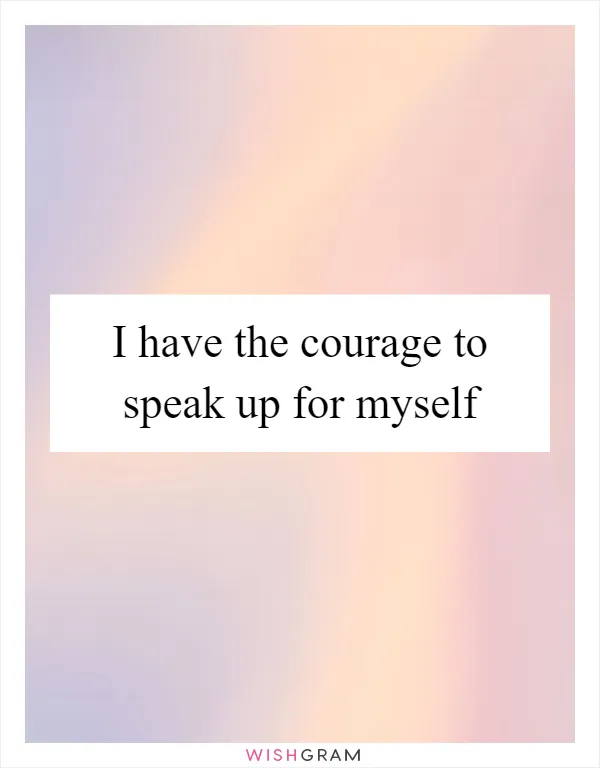I have the courage to speak up for myself
Having the courage to speak up for oneself is an essential quality that empowers individuals to assert their needs, express their opinions, and stand up for what they believe in. It is a trait that can greatly impact personal growth, relationships, and overall well-being. Courage affirmations play a significant role in nurturing this attribute, allowing individuals to develop the confidence and strength required to voice their thoughts and feelings.
When we possess the courage to speak up for ourselves, we are acknowledging our self-worth and asserting our boundaries. It is a powerful act of self-care that enables us to protect our emotional and mental well-being. By expressing our needs and desires, we create an environment where our voice is heard and respected, fostering healthier and more fulfilling relationships.
Speaking up for oneself also cultivates personal growth and development. It allows us to challenge our fears and step outside our comfort zones. By embracing the discomfort that often accompanies speaking up, we open ourselves to new opportunities and experiences. Through this process, we learn to trust our instincts, make decisions that align with our values, and take ownership of our lives.
Courage affirmations serve as a reminder of our inner strength and resilience. By repeating positive statements such as "I have the courage to speak up for myself," we reinforce our belief in our abilities and build self-confidence. These affirmations act as a source of motivation, encouraging us to overcome any self-doubt or fear that may hinder our ability to express ourselves authentically.
Furthermore, having the courage to speak up for oneself can inspire others to do the same. By being a role model and demonstrating assertiveness, we create a ripple effect that encourages those around us to find their own voice. This can lead to a more open and honest communication within our relationships, fostering understanding, empathy, and mutual respect.
However, it is important to note that courage does not mean being aggressive or disrespectful towards others. It is about finding a balance between assertiveness and empathy, expressing ourselves in a way that is both honest and considerate. By practicing active listening and seeking to understand different perspectives, we can engage in constructive conversations that promote growth and harmony.
